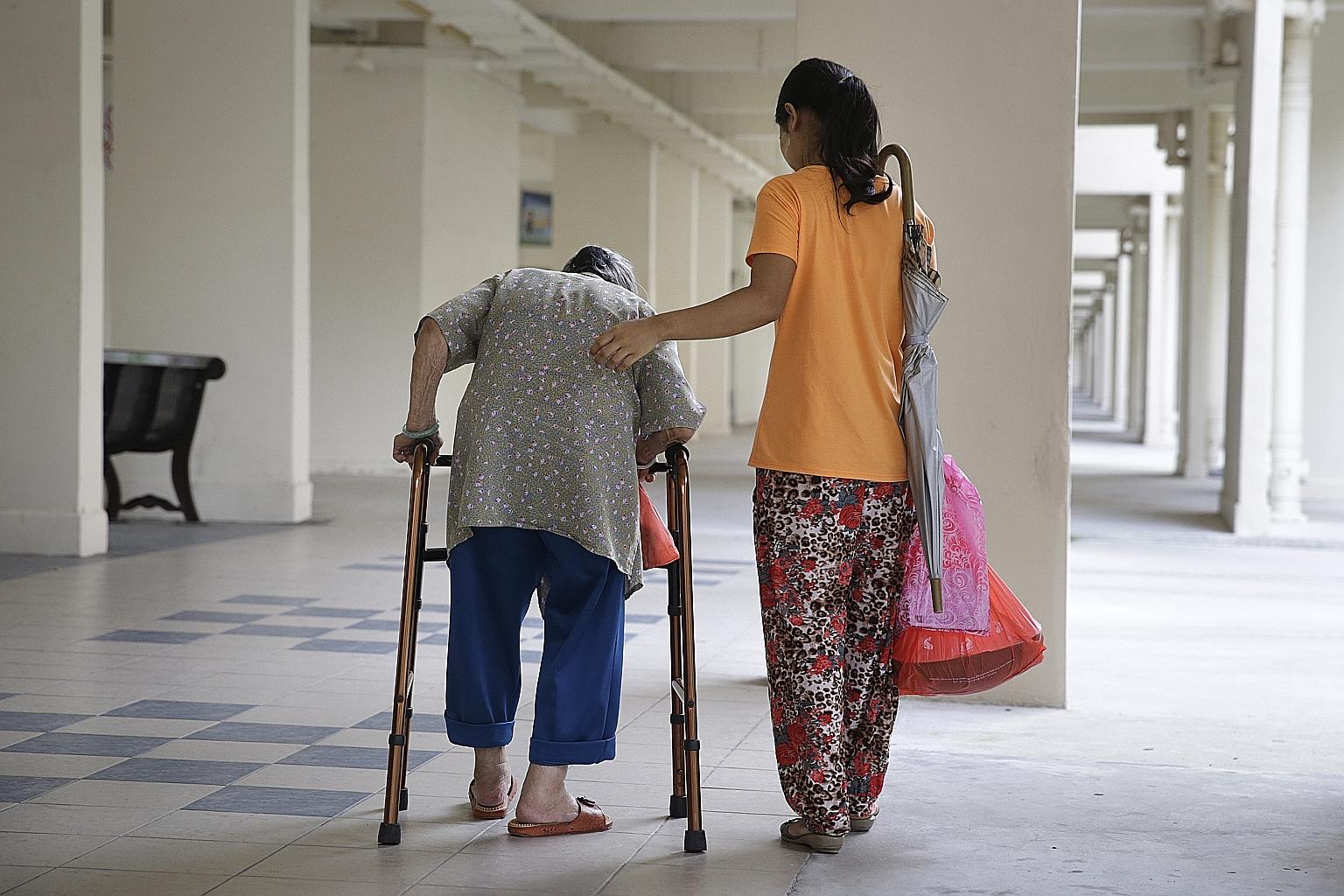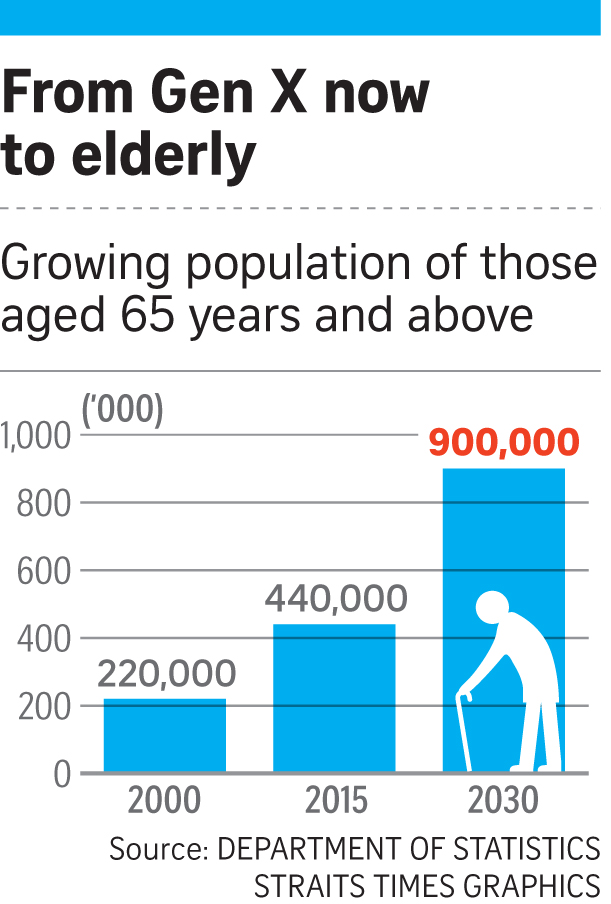CAN WE DO WITHOUT MAIDS?
Eldercare: More home and daycare services
Or how about an Uber-like service to tap nurses, caregivers? Robots are an idea too
Sign up now: Get ST's newsletters delivered to your inbox

Nearly one in three people in Singapore will require some form of eldercare by 2030. There will be a need for more facilities and healthcare workers, but robotics and smart home technology could offer solutions too.
ST PHOTO: KEVIN LIM
Walk into a hospital on a weekday and it won't be long before you see a domestic worker pushing her elderly charge in a wheelchair to his next appointment.
Several employment agents The Sunday Times spoke to say that up to 70 per cent of the Singapore families who hire maids do so because they need help taking care of ageing parents.
For adult children who live in a different house or work late, having a maid to keep an eye on their ageing parents brings some peace of mind. So what alternatives are there?
HOME CARE AND DAYCARE SERVICES
Options include community-based home care and daycare services, which the Government is encouraging to ease the rising need for hospital and nursing home beds.

Home care services range from someone hired to prepare meals, to a physiotherapist who assists with physical rehabilitation, to a nurse who can change urinary catheters or feeding tubes - all in the elderly person's own home.
On the Singapore Silver Pages website by the Agency for Integrated Care, home care services that provide personal care such as personal hygiene, assistance with medication and simple maintenance exercises range from $22 to $30 an hour, while medical visits start at $140 per session, all before subsidies. Eligible clients enjoy up to 80 per cent in government subsidies.
Daycare services are provided at integrated facilities that not only give seniors a chance to interact, but also offer services such as community nursing and rehabilitation in one location. Elderly clients return to their own homes in the evening. Prices can range from $250 to $600 a month, before subsidies.
However, such facilities are in short supply. In April, MP Lily Neo (Jalan Besar GRC) even went so far as to say in Parliament that "our home care services are almost non-existent at present".
As for daycare spots, there are only 3,500 - a figure that the Government is pushing to increase. By 2030, almost a million people will be above 60. Nearly one in three people will need some form of eldercare service by then.
Another problem is the lack of healthcare workers and caregivers in the eldercare sector.
Speaker of Parliament Halimah Yacob, an MP for Marsiling-Yew Tee GRC, says more should be done to attract Singaporeans to work in the eldercare sector. She suggests that the Government set up a central employment agency to recruit and train staff and plan their career development.
The eldercare sector's negative image also needs to change, she says, noting "low wages and a lack of career opportunities as it is largely dominated by VWOs (voluntary welfare organisations)".
She adds: "As more foreigners are employed in this sector, it further reinforces the negative image that this is not an exciting sector to join."
Meanwhile, the private sector can be tapped as well, to help with eldercare in sometimes less obvious ways.
For example, already there are several companies marketing wearable panic buttons that elderly users can press to alert their family members if they fall.
And with the silver market expected to expand, from $9 billion in 2014 to $16 billion by 2030, what is stopping enterprising entrepreneurs from creating the eldercare equivalent of Uber (a private-hire car firm) for nurses or caregivers?
ROBOTICS AND TECHNOLOGY
Technology is another area that Singapore can examine to reduce the reliance on maids for eldercare.
Foreign Affairs Minister Vivian Balakrishnan said during a visit to Japan in April that it was worth studying how that country had extensively used robotics in nursing and caring for senior citizens.
Japan is an ageing country - those over 65 are expected to make up 40 per cent of its population by 2060 - and also has strict immigration laws, so it is delving into the world of robotics to find solutions.
For example, Japanese firm Cyberdyne produces mechanical limbs and "exoskeletons" - wearable machines that support a user, giving them mobility and strength - for patients with spinal difficulties. Such devices could allow frail seniors to take care of themselves.
And certainly, in Singapore, the Government has shown an eagerness to embrace technology with its Smart Nation drive.
It has also earmarked more than $450 million for the National Robotics Programme over the next three years, to help firms adopt robotics technology and boost productivity.
Already, the Housing Board and the Health Ministry have initiated pilot projects to develop and install elderly monitoring systems in flats occupied by lone elderly residents. These systems can monitor residents' activity levels and trigger an alert to a caregiver, for instance, when there is extended non-movement, which could point to a fall.
Dr Tan Hwee Pink, an associate professor of information systems at Singapore Management University, says the next step is to find a way to have eldercare technology run seamlessly with other home automation systems, so as not to overload the user with too many systems.
His goal in the meantime? "To ensure that technology does not replace, but triggers when needed, the human touch, as with a live-in maid, so the elderly can still enjoy their privacy (by living in their own home)."


